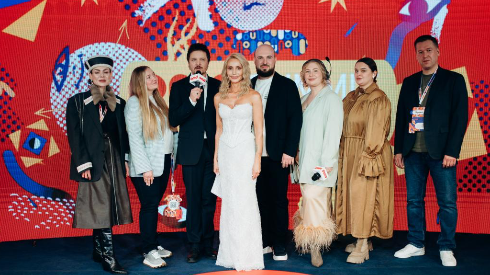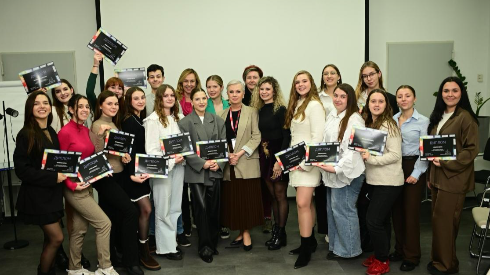
Missing persons: what families should do, whom to contact, and how to avoid falling prey to scammers
Life After Scars is a large-scale social project by 1+1 Media aimed at helping veterans return to civilian life and systematizing the unique experience of Ukrainian employers in working with this target audience. The project airs every Thursday at 10:30 a.m. on 1+1 Ukraine.
As part of “Life After Scars,” we tell the stories of veterans returning to civilian life, the difficulties they face along the way, and the successes they achieve. We also share the stories of their loved ones. Today, we are discussing individuals whose relatives are missing in action.
What should you do if a loved one goes missing? Who should you turn to for help? And how can you avoid falling prey to scammers or the enemy?
These questions are answered by Petro Yatsenko, spokesperson for the Coordination Headquarters for the Treatment of Prisoners of War.
You can watch the episode of “Life After Scars” about families of missing persons at the link.
Notification and dissemination of information on social media
What should a person do if they receive a notification about a missing relative? Petro Yatsenko notes that it is always a shock and a tremendous source of stress. However, it is crucial to know the basics in such situations.
First of all, notification that a person has gone missing in combat is handed over to the Territorial Center of Recruitment and Social Support. They are responsible for communication between the military unit and the soldier's family.
"And if a notification arrives, it is important to understand that the family must have a certain set of documents. These include copies of the passport, foreign passport, marriage certificate, military ID, contacts of comrades-in-arms, commander, and photos of the soldier," says Petro Yatsenko.
Sometimes people share information about their loved ones on social media, posting photos and personal details. But apart from comments of support and sympathy, such posts also attract fraudsters.
"If you leave your first and last name and phone number, there is almost a 100% chance that you will be called and someone will try to deceive you and take your money. They will promise to help you," adds the spokesperson.
Where to seek help?
The first step in such a situation is to report the person's disappearance to the nearest police department. Within 24 hours, the name of the investigator who will handle your case will appear in the Unified Register of Pre-trial Investigations.
After that, you should create a personal account on the website of the Coordination Headquarters for the Treatment of Prisoners of War. This authority was established in 2022 to coordinate the work of law enforcement agencies and ministries in the search for missing military personnel and civilians. The Coordination Headquarters has a road map for both civilians and military personnel.
"There (in the questionnaire on the website — ed.) are more than a hundred different fields to fill in, and sometimes relatives say that it is a lot of work and takes a lot of time. But it's all necessary! They will often ask about distinctive features. Tattoos, dental records, and dental X-rays should also be included," adds Petro Yatsenko.
You can find out how to create a personal account on the website from the video instructions at the link.
You can also contact the Coordination Headquarters at 0 800 300 529 or visit the regional office in Kyiv, Mykolaiv, Kharkiv, and Lviv.
Additionally, relatives should undergo a DNA test. This can significantly help in the search for a loved one. This is especially important during the repatriation of the bodies of fallen soldiers.
"Unfortunately, you have to be prepared for the worst. But at the same time, you have to be prepared for the best, as paradoxical as it may seem. We have had cases where a person who was considered missing and even dead returned. There were reports that a person had died, but they were wounded and taken prisoner," says Petro Yatsenko.
At the same time, information about loved ones can be searched for on the internet. However, the coordination headquarters emphasizes that such photos and videos are taken in places of detention in the aggressor country or temporarily occupied territories. They are created for ideological purposes.
"There are many offensive and painful things — you have to be mentally and physically prepared to endure it all. The Russians release such videos to influence families. It's cynical, cruel, and we have to work with it," says the spokesperson for the Coordination Headquarters.
Pressure from the enemy and advice on how to avoid it
Sometimes, Russians may take advantage of the difficult situation of the family of a captive or missing person and resort to blackmail and recruitment.
"They can influence families to cause disillusionment with the state and incite protests. There is also direct influence on families when they try to blackmail them and incite them to physical action. For example, families receive calls demanding that they burn military vehicles," explains Petro Yatsenko.
In such cases, the Coordination Headquarters urges people to report to the state authorities. This will help protect both the families and the prisoners.
"The fact that a person has the status of missing does not mean that they have been forgotten and that no work is being done on their case. This is not the case. All our defenders, as well as civilians, receive the same search measures as those who have confirmation of their captivity," concludes Petro Yatsenko.

